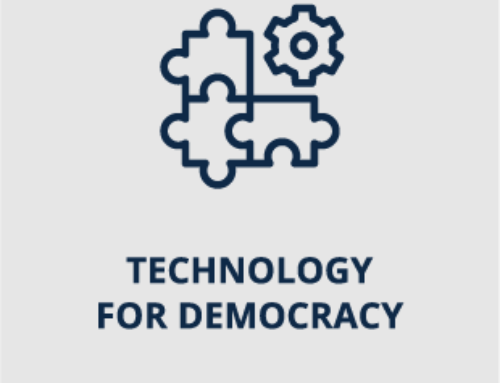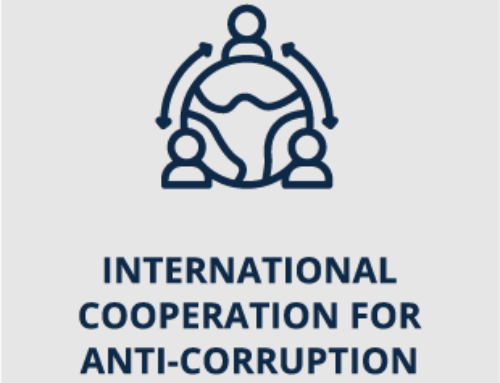The fifth in Afrobarometer’s special democracy summit series on Africa
These parallel trends aren’t a coincidence. Afrobarometer’s 48,084 face-to-face interviews in 34 African countries in 2019-2021 suggest that as people see levels of corruption rising in their key governing institutions, they grow increasingly dissatisfied with their democracy.
In the fifth installment of our series in the run-up to December’s Summit for Democracy, we explore the extent of perceived corruption and its corrosive effects on democracy across Africa.
Africans see corruption growing
And ordinary Africans say it’s getting worse.
On average across the 34 countries, almost six in 10 respondents (58 percent) say corruption in their country increased “somewhat” or “a lot” over the past year. And almost two-thirds (64 percent) say their government is doing a “fairly bad” or “very bad” job of controlling corruption.
As shown in Figure 1, perceived corruption increased in many countries that have long confronted governance challenges, such as Gabon (82 percent) and Mali (76 percent). But large majorities also see surges in fraud and dishonesty in Lesotho (78 percent), Mauritius (77 percent), Senegal (75 percent) and even in Namibia (73 percent), a country long noted for exceptionally low rates of bribery reported by respondents.
Figure 1: Corruption increased/decreased in previous 12 months | 34 African countries
Almost half (48 percent) of respondents see “most” or “all” police as corrupt, while at least one-third say the same about parliamentarians (38 percent), civil servants (37 percent), judges and magistrates (35 percent), officials in the presidency (35 percent), tax officials (35 percent) and local government councilors (33 percent).
In sum, more than a quarter (28 percent) of Africans report what we call “extensive institutional corruption,” meaning they think that most or all officials in at least four of these institutions are corrupt. Across 30 countries we’ve surveyed consistently over the past decade, this number has risen by five percentage points, fueled by large increases in Cabo Verde (+25 points), Guinea (+24 points), Lesotho (+16 points), South Africa (+12 points), Uganda (+12 points) and Senegal (+12 points).
Experiences of corruption
“Those are just perceptions,” a government official might respond, “based on hostile and sensationalist news and social media!” So what do we know about actual experiences?
Among respondents who sought key public services during the previous year, more than one-third say they had to pay a bribe to obtain police assistance (36 percent) or avoid problems with the police (34 percent). Many others report paying bribes to get a government document (25 percent), medical care (19 percent) or public school services (18 percent).
All told, among all respondents — not just those who tried to obtain these government services — 28 percent report paying a bribe to at least one of these agencies in the previous 12 months. Levels of extortion were far higher in Liberia (58 percent), Uganda (53 percent), Cameroon (50 percent) and Guinea (50 percent).
And the scope of victimization has expanded considerably in many countries since we started tracking this indicator in 2014-2015, led by Guinea (+26 percentage points), Niger (+19 points), Uganda (+17 points), Lesotho (+15 points) and Zimbabwe (+15 points).
Does corruption corrode democracy?
As we reported earlier in this series, while average levels of public support for democracy across Africa have remained high, satisfaction with the way democracy works has plummeted over the past decade — to just 41 percent across 34 countries. This downward trend is pronounced even in some countries once considered leading democracies on the continent, including Zambia (-31 points), South Africa (-29 points), Cabo Verde (-22) and Mauritius (-22).
While many factors drive citizens’ disenchantment with the way democracy works, our findings suggest that the increasing perceptions of corruption play a major role.
Interestingly, having to pay a bribe appears to have little impact on support for or satisfaction with democracy.
The most likely reason is that people make distinctions: When they’re asked for a bribe, they see a problem of underpaid or greedy low-level civil servants. But when they hear about massive embezzlement, bribes or contracts for cronies, they are much more likely to see a failure of the democratic system. Grand corruption schemes usually require the involvement or implicit assent of elected officials, and thus directly link corruption and democracy in people’s minds.
For instance, among respondents who report extensive institutional corruption in their country, just 39 percent say their country is democratic, and 30 percent are satisfied with the way democracy works. Among all other respondents, in contrast, 57 percent say they live in a democracy, and 46 percent are satisfied with its functioning.
With few exceptions, as shown in Figure 2, countries where people perceive high levels of corruption also register high levels of dissatisfaction — that’s the story in Gabon, Mali, Guinea, Lesotho and South Africa.
Figure 2: Corruption and dissatisfaction with democracy | 34 African countries
And over time, when perceptions of corruption rise or fall, levels of dissatisfaction with democracy tend to follow suit, as illustrated in the figures below. In South Africa, dissatisfaction with democracy grew steadily alongside scandals involving President Jacob Zuma’s efforts to help his cronies capture contracts and accumulate influence in his administration. Yet dissatisfaction continued to rise under his successor, Cyril Ramaphosa, whose office was tainted by his personal spokesperson’s implication in a major coronavirus-relief scandal.
Until 2014, Ghana also saw parallel increases in perceived corruption and dissatisfaction with democracy. However, the 2015 high-profile firings of judges on charges of bribery, the 2016 election of President Nana Akufo-Addo on an anti-corruption ticket and the appointment of a special prosecutor for corruption appear to have reversed these trends — at least temporarily.
Figure 3: Corruption and dissatisfaction with democracy: South Africa and Ghana
Christiaan Keulder is the owner of Survey Warehouse, the national investigator for Afrobarometer in Namibia and a doctoral student at the University of Strathclyde in Scotland.
Robert Mattes (@BobMattes1) is professor of government and public policy at the University of Strathclyde and honorary professor in the Institute for Democracy, Citizenship and Public Policy in Africa at the University of Cape Town.







